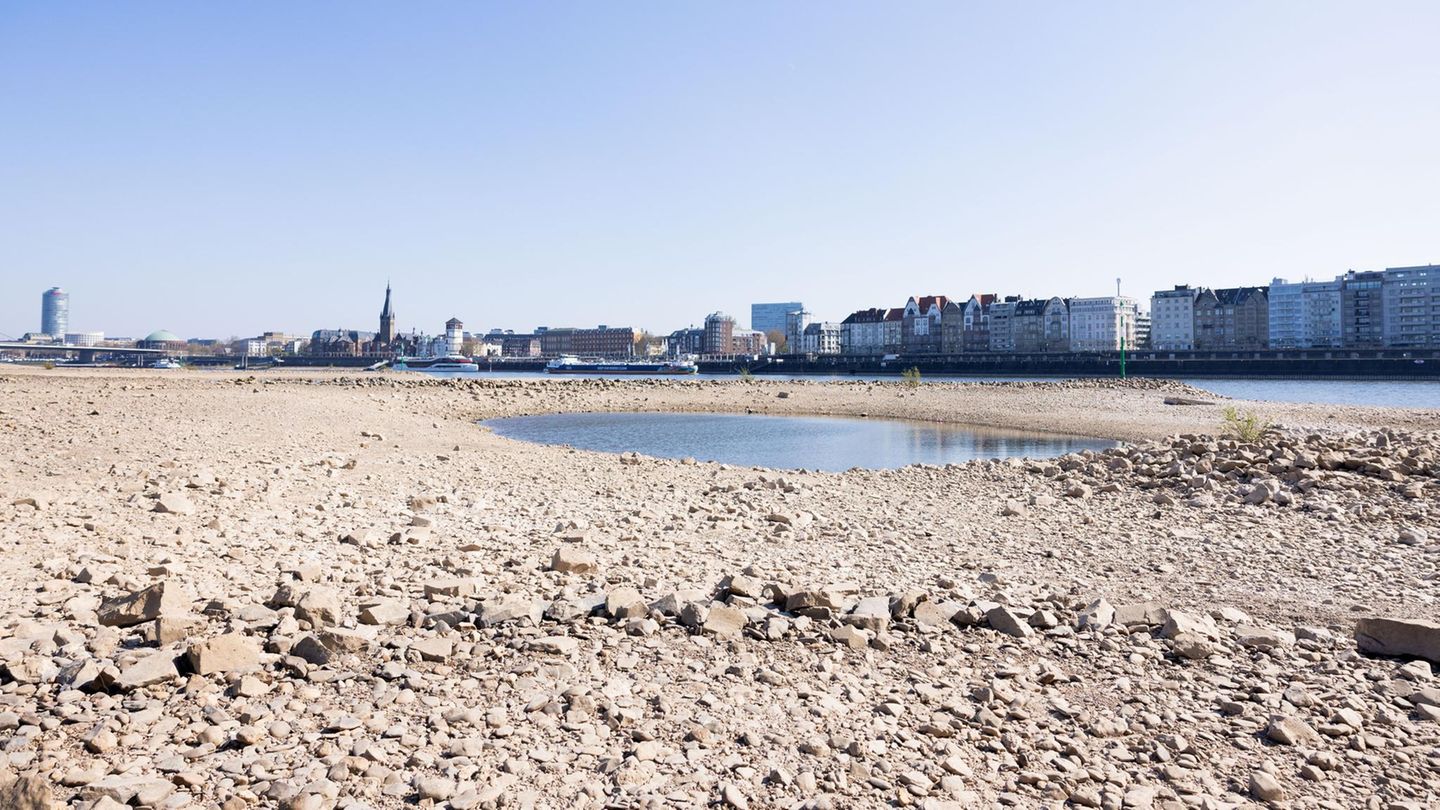Persistent drought
The Rhine level drops – and lets prices rise
Copy the current link
Add to the memorial list
Winter and spring were very dry in Germany. What this means can be observed on the Rhine: the levels drop significantly – but what are the consequences?
After the dry weather of the past few weeks, low levels affect shipping on the Rhine. According to dealers, cargo ship operators have to raise surcharges on the freight rates again, since the ships cannot drive fully loaded. This leads to higher transport costs.
“Ships can only drive around 40 to 50 percent loaded on most sections of the river, including Duisburg and Kaub,” said a German grain retailer on Thursday. “We have to pay for two ships instead of paying one or switch to expensive street transport.” There is a real competition for the ships that are still available.
The weather forecast for the coming days indicates that the drought will continue to stop in the river catchment areas, so that no quick improvement in the situation can be expected.
Corporations can still cope with the low Rhine level
The lack of rain in March and April has had the water levels on the entire river south of Duisburg and Cologne, including the Kaub constriction. The level fell again this week. The market prices for a tanker freighter from Rotterdam to Karlsruhe rose to around 46 euros per ton of freight on Thursday, after 34 euros in the previous week. The Rhine is an important transport route for goods such as grain, coal, petrol and heating oil.
After a drought and heat wave in the summer of 2022, German companies saw themselves faced with supply bottlenecks and production problems because the water levels on the Rhine were unusually low. The Chemical Group BASF-whose largest work in Ludwigshafen receives around 40 percent of raw materials over the river-had prepared with special low-water ships after the 2018 extreme low water. BASF has now stated that the current low water situation was manageable. The raw material supply and the delivery of the customers are secured because the logistics are set to fluctuating levels.
The special chemical company Lanxess said that the low water level has so far had no serious effects on the shipping of its works in Leverkusen, Dormagen and Krefeld-Uerdingen. Due to the lower depth of the ships, however, more transport capacity must currently be made available to reverse the same amount of freight. If the water continues to drop, you will switch to alternative means of transport such as trucks.
“We currently have no problems with our raw material supply,” said the Steel -Krupp Steel Europe steel giant. “Effect of the low level is that we drive a little more often and load the ships a little less.” Germany’s largest power generator RWE also gave the all -clear. In Germany, the provider only operates lignite -fired power plants, for which the coal is transported directly from the nearby open -cast mines to the power plants. Sulling water from the open -cast mine is used for cooling, so that the power plant company at RWE is not affected by different water levels of the Rhine.
Reuters
CL
Source: Stern





